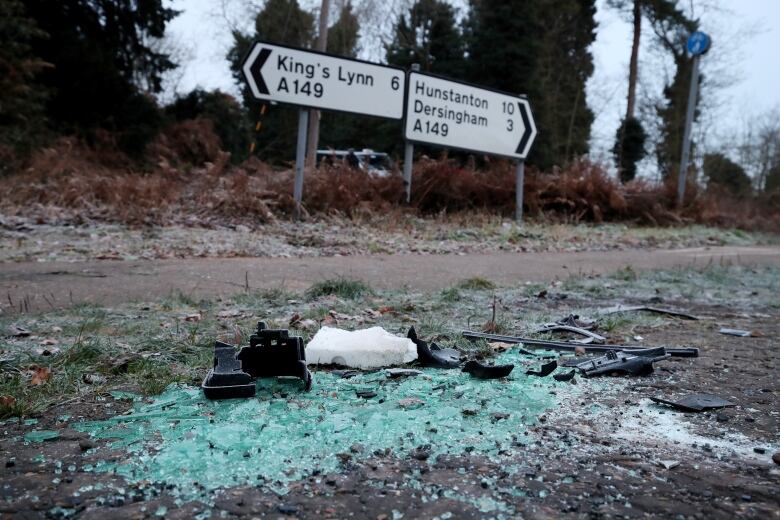Prince Philip gives up driver's licence in wake of crash
Prosecutors mull possible charges against royal in vehicle collision that injured 2

Prince Philip has decided to stop driving at the age of 97, less than a month after he was involved in a collision that left two women injured, Buckingham Palace said Saturday.
Prosecutors said they would consider the decision as they decide whether to charge the husband of Queen Elizabeth II over the Jan. 17 crash.
"After careful consideration the Duke of Edinburgh has taken the decision to voluntarily surrender his driving licence," the palace said in a statement.
Philip was behind the wheel of a Land Rover near the Royal Family's Sandringham estate in eastern England when he smashed into another car on Jan. 17. Philip had to be helped out of his overturned vehicle but wasn't injured. Two women in the other car were injured, though not seriously, and a nine-month-old boy was unhurt.
Police said Philip and the other driver were both given breath tests for alcohol and passed.
Philip was photographed driving again two days later, without a seat-belt. After that, police said they offered him "suitable words of advice."

Norfolk Police confirmed Saturday the prince had "voluntarily surrendered his licence to officers." It said an investigation file on the case had been handed to prosecutors, who will decide whether to press charges.
The Crown Prosecution Service said in a statement "we review each file carefully before a decision is made and will take this development into account."
In a letter of apology to one of the injured women, Philip said he was dazzled by the sun when he pulled onto a main road near the royal retreat 160 kilometres north of London.
In a letter published by a newspaper, he told Emma Fairweather, who suffered a broken wrist in the crash, "I can only imagine that I failed to see the car coming, and I am very contrite about the consequences."
There is no upper age limit for licensing drivers in Britain, although drivers over 70 are required to renew their licences every three years and tell authorities about any medical conditions that might raise safety issues.